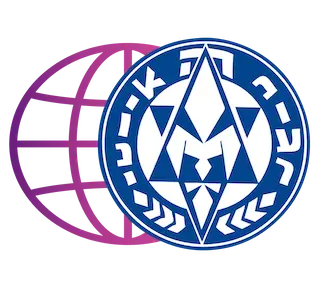By Romi Morales
The Parashat Yitro is one of the most significant in the Torah. In it, Bnei Israel witnesses the revelation at Mount Sinai and the reception of the Ten Commandments, a foundational moment in the history of our people. However, beyond its importance to Judaism, this event represents a transformation in how different peoples have understood interpersonal relationships as essential for building societies based on justice, respect, and safety for all their members.
From the Commandments to the Construction of Safe Zones
If we consider our Tnuot, Kenim, and educational communities as social microcosms, the Ten Commandments not only shape our identity as human beings and Jews but also as educators. These principles are not merely spiritual or historical guidelines; they are an active guide that helps us consolidate spaces where learning and development can flourish.
To better understand this connection, let us explore how each commandment can serve as a compass for those responsible for education.
The Ten Commandments: A Code for Education
Throughout history, the Ten Commandments have been a fundamental ethical foundation. They not only establish norms for coexistence but also offer principles that, when applied in the educational field, can profoundly transform the way we shape new generations.
From Revelation to Educational Action
Since the revelation at Mount Sinai, the Jewish people have understood that healthy coexistence is based on values such as honesty, empathy, and responsibility. For those who take on the role of educators, these principles become essential pillars that guide every interaction with their students. But how can we translate these values into concrete actions within our educational frameworks?
The Ten Commandments Applied to Education
Below, we present how each commandment can serve as a key educational tool:
Identity and Belonging � “I am Hashem, your God…”
An educator must have clarity about their own identity and transmit it with pride. At Hanoar Hatzioni, Jewish and Zionist identity, humanist-liberal, and chalutzian values are fundamental pillars. The tzevet must inspire the janijim and janijot to discover who they are, fostering a sense of belonging within diversity.
Coherence and Authenticity � “You shall have no other gods…”
Anyone who wishes to educate must be a role model, aligning their teachings with their actions. The janijim and janijot quickly perceive whether an educator is genuine. Authenticity builds trust and reinforces the values we aim to convey.
Responsibility in Speech � “You shall not take the name of Hashem in vain…”
Words have the power to build or destroy. An educator must be aware of the impact of their language and, therefore, must teach janijim and janijot to communicate with respect and purpose.
Balance and Reflection � “Remember the Shabbat…”
Just as Shabbat allows for a pause to reconnect with what is essential, our education in the ken must balance action with reflection.
Continuity and Appreciation of Legacy � “Honor your father and mother…”
Being part of Hanoar Hatzioni means recognizing and honoring those who came before us. In this sense, and especially now, as we celebrate the 100th anniversary of our movement, it is important for madrijim and madrijot to know the history of the movement and pass it on to future generations with passion and inspiration.
Respect, Dignity, Benevolence � “You shall not murder…”
Beyond its literal meaning, this commandment reminds us that we can “kill” someone�s spirit with hurtful words or indifferent attitudes. A safe educational space is one where every person feels valued.
Truth, Commitment, and Loyalty � “You shall not commit adultery…”
Education is a commitment. Madrijim and madrijot must be loyal to their group, be present, prepare their peulot with dedication, and take their role as educational guides seriously.
Humility and Ethics � “You shall not steal…”
Education is not about taking center stage. A good educator allows their janijim and janijot to shine and grow without imposing their own vision but rather guiding them in constructing their own path.
Honesty and Transparency � “You shall not bear false witness…”
Education based on honesty strengthens the trust between madrij and janij. Being sincere and vulnerable creates an environment where truth and mutual respect are fundamental.
Companionship, Brotherhood, and Appreciation of Diversity � “You shall not covet…”
Every person is unique. Madrijim and madrijot must avoid comparisons to foster a sense of community based on acceptance and mutual growth.
The Ten Commandments as Tools for Creating Safe Zones
As we have seen, the Ten Commandments are not just a moral code but a practical guide for education and the construction of safe zones. Ensuring a safe educational space means much more than preventing conflicts: it involves creating an environment where every person feels valued, respected, and free to develop fully. If we apply these commandments in our educational practice, we become active creators of spaces where everyone can grow without fear, with confidence, and with the certainty that their voice and identity matter.
Conclusion: From Theory to Transformation
Education is not just the transmission of knowledge; it is the construction of communities based on shared values. If we want our Tnuot to be true safe zones, we must commit to education based on respect, responsibility, and identity. The Ten Commandments provide us with a clear roadmap for this. It is not just about knowing them but about living them and applying them in every peul�, in every conversation, and in every action. Because when we educate based on these principles, we not only shape better madrijim and madrijot but also build a fairer, more humane, and, above all, safer world for all.











